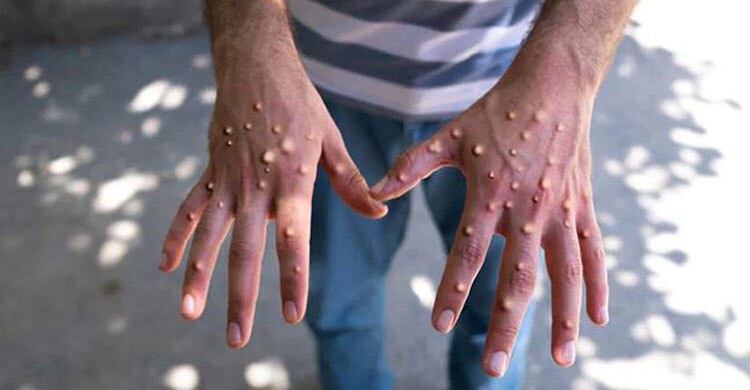A new variant of the mpox virus has emerged in Central Africa, affecting children and adults in the Democratic Republic of the Congo and neighboring countries. Mpox, formerly known as monkeypox, is an infectious disease caused by the monkeypox virus, which can lead to a painful, pus-filled skin rash lasting up to four weeks.
What is mpox?
Mpox, originally called monkeypox, is an infectious disease caused by the monkeypox virus. Discovered in 1958 during an outbreak among monkeys used for research in Denmark, the virus is believed to be harbored by rodents or small mammals like squirrels and primates, though the original source remains unknown.
Historically, mpox cases outside of Central and West Africa, where the virus is endemic, were rare and typically linked to travel or imported animals. However, in the last two years, the World Health Organization (WHO) has declared mpox a global health emergency twice. In 2022, the virus spread to over 70 countries that had not previously reported cases. This year, a new variant of mpox has caused a surge in cases and deaths in Congo and surrounding regions, prompting another international emergency declaration from WHO.
How is mpox spread?
Mpox spreads through various forms of close contact. The virus can enter the body through broken skin, mucous membranes (such as the eyes, mouth, and nose), and the respiratory system. Direct contact with an infected person’s skin lesions, body fluids, or respiratory droplets can result in infection. This can occur through skin-to-skin contact during activities like kissing, hugging, sex (oral, anal, or vaginal), and massages.
Prolonged face-to-face interactions, such as talking or breathing near someone with mpox, can also transmit the virus through respiratory droplets. Sharing sex toys, bedding, or towels with an infected person is another mode of transmission. Pregnant individuals can pass the virus to their babies.
Contact with infected animals, such as through skinning, cooking, eating, or hunting, or through bites and scratches, can also lead to infection. An infected person can spread the virus even before symptoms appear, and transmission can continue until all skin lesions have healed and a new layer of skin has formed, which may take weeks.
What are the Symptoms of mpox?
Mpox typically begins with a rash, often located near the anus, genitals, chest, face, or mouth, which can spread to other parts of the body, including the palms and soles. The rash may resemble pimples or blisters at first, progressing through various stages before forming scabs and falling off. The rash can be painful and itchy.
Flu-like symptoms, such as fever, headache, swollen lymph nodes, muscle aches, and chills, may occur before or after the rash appears. Some individuals also report difficulty urinating and painful swelling of the anus. Symptoms usually start within 21 days of exposure.
Complications can arise when lesions become infected, leading to abscesses. Other potential complications include severe dehydration caused by diarrhea or vomiting, pneumonia, and inflammation of the brain (encephalitis) or heart (myocarditis).
Who is most at risk?
Individuals with weakened immune systems, including those with medical conditions or on immunosuppressive medication, are at higher risk of complications from mpox. Health care workers, sex workers, and people with multiple sexual partners are also at increased risk. The U.S. Centers for Disease Control and Prevention (CDC) notes that other high-risk groups include pregnant individuals, children under one year old, and people with a history of eczema.
During the 2022 outbreak, many cases initially appeared among men who have sex with men. However, the WHO emphasizes that anyone in close contact with an infected person can contract mpox, regardless of sexual orientation.
How can mpox be prevented?
Most people recover from mpox within two to four weeks. To reduce the risk of spreading the virus, avoid close contact with anyone who has a visible rash, particularly in settings where skin-to-skin contact is common, such as parties, clubs, and festivals. Limiting the number of sexual partners and using condoms can also help reduce the risk, though condoms do not prevent infection if lesions or body fluids are present on other parts of the body.
The CDC advises against touching objects handled by someone with mpox, such as utensils, towels, and bedding, and recommends frequent hand-washing. Since the mpox and smallpox viruses are genetically similar, smallpox vaccines can also provide protection against mpox infection.
Source: DW













+ There are no comments
Add yours